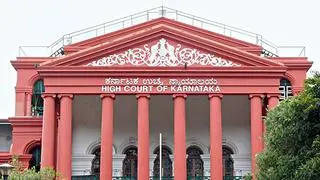What has the MEITY advisory on AI, generative AI, LLMS or other algorithms said?
The MEITY advisory, which was issued late night on March 1, is an extension of the advisory issued last December, which sought that social media intermediaries comply with due diligence and grievance redressal obligations. As part of its March 1 advisory, MIETY has extended these due diligence obligations to AI as well – seeking all intermediaries to ensure that their AI models, generative AI software, or algorithms are not used to host, display or share any unlawful content outlined under the IT rules.
The advisory further adds platforms need to ensure that their AI platform does not permit any bias. Moreover, under-tested and unreliable AI models, LLMs, software and algorithms also need to seek prior permission from the Centre before being deployed on the Indian internet.
What is the background to this advisory? Is it aimed at preventing any disruption during the elections?
This advisory was prompted when Google’s family of large language model Gemini labelled the Prime Minister as fascist, provoking a confrontation between the company and the government. Gemini said the reasons for this characterisation were the ruling party’s “Hindu nationalist ideology, its crackdown on dissent and its use of violence against religious minorities”. When similar prompts were keyed in for US president Donald Trump and the Ukrainian president, Volodymyr Zelenskiy, Gemini produced more benign answers.
Who is impacted by this advisory? Will it also impact companies that use AI for internal analytics?
This advisory, which was issued over the weekend, has left the tech sector befuddled, as they are unable to understand its implications for the industry. The AI ecosystem in India not only includes intermediaries such as Google or Microsoft that have LLMs like Gemini and Bard for public use – but also start-ups or enterprise-focused tech firms that are exploring B2B applications of these LLMs.
Minister, Rajeev Chandrashekhar, later clarified on X that, “the advisory is aimed at significant platforms and permission seeking from Meity is only for large platforms and will not apply to start-ups. He also stated that the advisory was aimed at untested platforms, which will need to seek prior approval from the government. It needs to be noted that the official advisory states that under-tested and unreliable platforms need to take prior approval from the Centre. Chandrashekhar also clarified that this advisory is not legally binding, but rather this process is an insurance policy for these platforms that can otherwise be sued by customers. Despite these clarifications, the tech ecosystem remains confused regarding the implications of the advisory are.
Why is the tech industry unhappy with this advisory?
The tech industry believes that this advisory is an over-extension of the due diligence obligations of the IT rules. Therefore, they believe that it is legally untenable. Moreover, even with Chandrashekhar’s clarifications, the advisory lacks clarity. Thus, tech firms are still struggling to clearly understand its implications. It remains unclear what the Centre means by untested or unreliable, which firms will fall under the definition of large platforms, and what the Centre mean by bias. As aggregators of information already out in the public domain, experts believe that it is debatable if LLMs are obliged to protect for bias and misinformation. People further propagating this information as fact online must be held accountable, according to experts.







